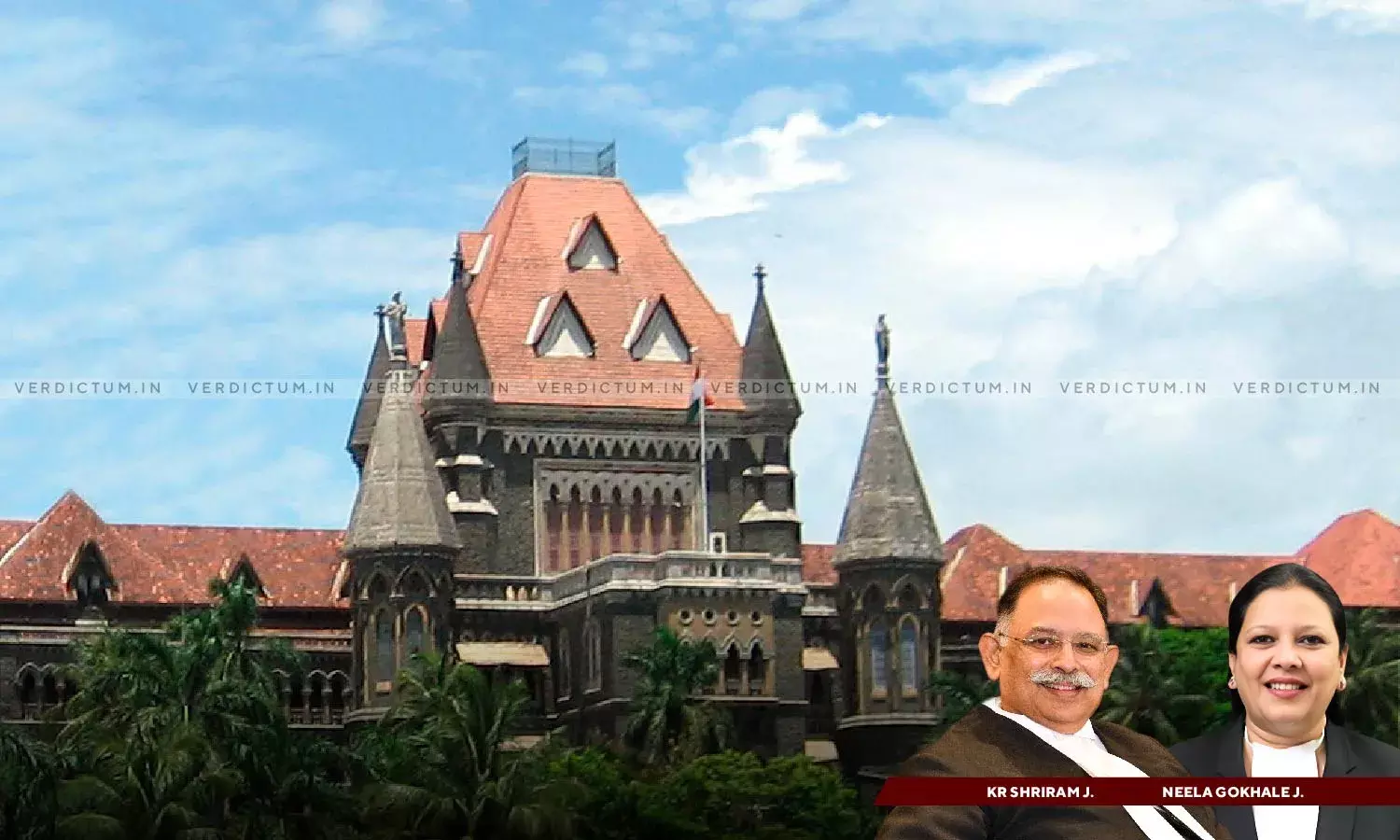Income Tax| JAO Duty Bound To Decide Rectification Application Pending For Six Years; Bombay HC Directs PCCIT To Take Disciplinary Action
The Bombay High Court condemned the conduct of a Jurisdictional Assessing Officer (JAO) in not replying to the rectification application filed by a businessman upon his Income Tax Returns and observed that he was duty-bound to pass orders on the application pending for almost six years.
Further, the Court directed the Principal Chief Commissioner of Income Tax (PCCIT) to take disciplinary action against the JAO for dereliction of duty.
The Division Bench of Justice KR Shriram and Justice Dr. Neela Gokhale observed, “As regards the application filed by petitioner before respondent no.1 on 14th April 2018 for rectification of the intimation dated 29th March 2018, we have to note our disappointment with the conduct of respondent no.1 in not even replying to petitioner. Mr. Rattesar relies on the affidavit in reply filed through on Shyam Lal Meena, ACIT, affirmed on 8th April 2024 to submit that rectification order under Section 154 of the Act was not passed as there was no mistake apparent from record for which rectification sought to be done was to be passed. Respondent no.1 was duty bound to pass orders on the application which has been pending for almost 6 years, instead of making such baseless statements in the affidavit in reply. Perhaps, respondent no.1 thinks that he or she is not accountable to any citizen of this country. Copy of this order shall be placed before the PCCIT to take disciplinary action against respondent no.1 for dereliction of duty.”
Advocate Rahul Sarda appeared for the Petitioner whereas Advocate Ravi Rattesar appeared for the Respondents.
The Petitioner, who is an independent businessman, filed a rectification application and upon Form 10CCB being uploaded online, the said application was transferred to the JAO. It was alleged that despite repeated reminders the JAO did not dispose of his application, so consequently, he approached the Principal Commissioner of Income Tax (PCIT) seeking a grant for deductions which were denied to the petitioner under Section 143(1) of the IT Act, 1961.
The Petitioner’s application under Section 264 of the Act came to be dismissed on the ground that he had not applied for revision within the limitation time prescribed and there was a delay of about two and a half years. Since the application under Section 264 of the Act was rejected without deciding on merits, the petitioner continued to pursue the pending rectification application.
According to the petitioner, till date, no decision has been taken by JAO on the rectification application filed by him, though almost 6 years have passed. Therefore, left with no option, he approached the Central Board of Direct Taxes (CBDT) to condone the delay, if any, and to direct the JAO to allow the rectification application.
While relying on R.K. Madhani Prakash Engineers v. Union of India &Ors., the Court held, “The Court has held that the phrase ‘genuine hardship’ used in Section 119(2)(b) of the Act should be considered liberally. CBDT should keep in mind, while considering an application of this nature, that the power to condone the delay has been conferred is to enable the authorities to do substantial justice to the parties by disposing the matters on merits and while considering these aspects, the authorities are expected to bear in mind that no applicant would stand to benefit by lodging delayed returns. The court also held that refusing to condone the delay can result in a meritorious matter being thrown out at the very threshold and cause of justice being defeated. As against this, when the delay is condoned, the highest that can happen is that a cause would be decided on merits after hearing the parties.”
The Court also said that the legislature has conferred power on PCIT to condone the delay to enable the authorities to do substantive justice to the parties by disposing of the matter on merits. Routinely passing the orders, without appreciating the reasons why the provisions for condonation of delay, have been provided in the act, defeats the cause of justice, it further stated.
Accordingly, the Court quashed and set aside the impugned order and directed JAO to dispose of the application on or before May 31, 2024.
Cause Title: Pankaj Kailash v. Assistant Commissioner of Income Tax and Ors. (Neutral Citation: 2024:BHC-OS:5983-DB)
Appearances:
Petitioner: Advocates Rahul Sarda and S. S. Nargolkar.
Respondents: Advocate Ravi Rattesar




